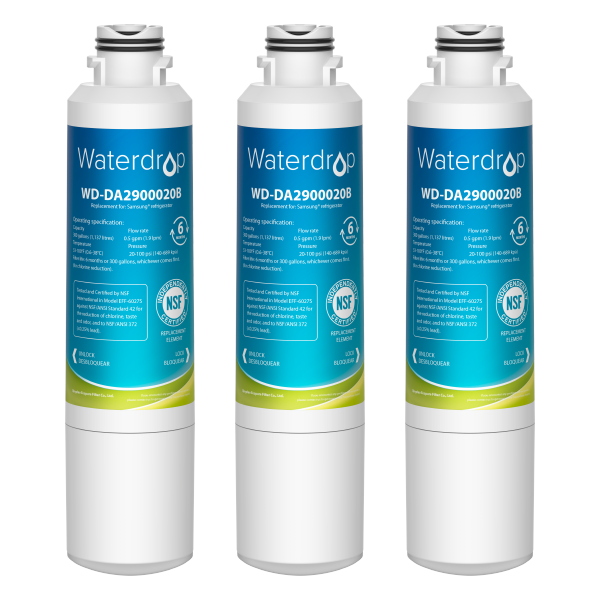Is Tonic Water Good for You? A Deep Dive into Its Health Benefits
by Dr. Jonathan Doyle - Updated April 12, 2025
When it comes to refreshing drinks, few can match the crisp, fizzy appeal of tonic water. Whether it’s paired with your favourite gin in a classic gin and tonic or enjoyed on its own, tonic water has earned its place as a staple in many Australian households. But is tonic water actually good for you? This question has been asked for years, and in this blog post, we’re going to explore the health benefits of tonic water, the possible downsides, and whether it’s a drink you should regularly include in your diet.
So, if you’ve ever wondered if tonic water is more than just a mixer, keep reading as we break down its nutritional properties, its potential health benefits, and much more.
What Exactly Is Tonic Water?
Before we get into whether tonic water is good for you, let’s first clarify what it actually is. Tonic water is a carbonated beverage that contains quinine, a bitter compound extracted from the bark of the cinchona tree. Quinine has been historically used to treat malaria , which is why tonic water has earned a reputation as a “medicinal” drink.

In addition to quinine, tonic water typically contains sugar or artificial sweeteners, citric acid, and carbonation. This combination of ingredients gives tonic water its distinct bitter taste, with a slight sweetness that makes it a popular choice for mixing with spirits.
Key Ingredients in Tonic Water
- Quinine: The active ingredient that gives tonic water its bitter taste.
- Carbonation: Provides the fizzy texture that we love.
- Sugar or Sweeteners: Adds sweetness to balance the bitterness.
- Citric Acid: Often used to enhance the flavour.
Now that we know what’s in it, let’s take a look at whether tonic water has any real health benefits.
Is Tonic Water Good for Your Health?
1. May Help with Muscle Cramps
One of the most well-known potential health benefits of tonic water is its ability to help relieve muscle cramps. This is largely attributed to the quinine in tonic water. Quinine has been used for centuries as a treatment for malaria, but it has also been found to be effective in reducing muscle cramps, especially leg cramps that often occur at night.

Some studies suggest that quinine can help prevent and treat these cramps, but it’s important to note that the amount of quinine in a typical serving of tonic water is quite low compared to the doses used in medical treatments. If you’re struggling with frequent muscle cramps, it’s always a good idea to consult with your healthcare provider before using tonic water as a remedy.
2. Hydration and Refreshment
Tonic water is, at its core, a carbonated beverage that provides hydration. While it’s not a substitute for water, especially in hot climates like Australia, it can be a refreshing alternative to sugary soft drinks or even plain water. Its fizziness and slight bitterness can be particularly enjoyable on a hot day, especially when served chilled.
3. Rich in Antioxidants
Tonic water contains small amounts of antioxidants due to the quinine content. Antioxidants are compounds that help fight free radicals in the body, which can contribute to inflammation and oxidative stress. While tonic water is not a primary source of antioxidants, it can still offer a small boost when consumed in moderation.
If you’re looking for an antioxidant-rich drink, however, there are better options such as green tea, fresh fruit juices, or water infused with herbs. But tonic water can certainly be a fun and light way to add a bit of variety to your diet.

4. Supports Digestive Health
The bitter taste of tonic water is due to quinine, which can stimulate the digestive system. Some people believe that drinking tonic water can help with digestion, especially after a heavy meal. While there’s no definitive scientific evidence that tonic water significantly boosts digestion, it can potentially aid in the process, especially if it helps you feel more relaxed after eating.
For those in Australia who are prone to digestive issues like bloating or indigestion, sipping on a small amount of tonic water after meals may provide a mild sense of relief, but it should never be considered a substitute for a healthy diet or proper medical treatment.
The Potential Downsides of Tonic Water
While there are some potential health benefits to drinking tonic water, there are also a few considerations to keep in mind before incorporating it into your regular routine.
High Sugar Content
One of the most significant concerns with tonic water is its sugar content. Traditional tonic water contains quite a bit of sugar to balance out the bitterness of quinine. This can lead to extra calories and increased blood sugar levels, which may not be ideal if you’re watching your weight or trying to manage conditions like diabetes.

Possible Side Effects of Quinine
While quinine in tonic water is safe in small amounts, it can cause side effects for some people, especially if consumed in large quantities. Possible side effects of quinine include:
- Nausea
- Dizziness
- Tinnitus (ringing in the ears)
- Visual disturbances
In rare cases, quinine can cause allergic reactions or interact with certain medications, such as blood thinners. If you’re pregnant, breastfeeding, or have any medical conditions, it’s important to consult your doctor before drinking tonic water regularly.
Conclusion: Should You Drink Tonic Water?
So, is tonic water good for you? In moderation, it can certainly offer some health benefits, especially when consumed as part of a balanced diet. From relieving muscle cramps to aiding in digestion, tonic water can be a refreshing addition to your routine. However, it’s important to be mindful of its sugar content and the potential side effects of quinine.
For those in Australia looking to stay hydrated, enjoy a refreshing beverage, or add a little zest to their alcoholic drinks, tonic water is a fun option. But, as with all things, moderation is key.
Contaminants Detected in Fruitland Water Special Service District
30
Contaminants
EXCEED EWG HEALTH GUIDELINES
EXCEED EWG HEALTH GUIDELINES
30 Total Contaminants in Your Water
Water Provider
Fruitland Water Special Service DistrictPopulation Affected
120,000Water Source
Ground waterExceeds Guidelines
Others Detected









